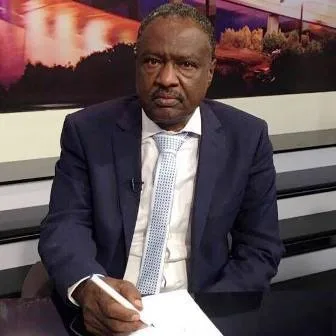The Nairobi Earthquake

By Rashid Abdel Rahim
On the day following the Rapid Support Forces (RSF) gathering and its allied states’ assembly in Nairobi—just before the announcement of the so-called charter and parallel government—the Kenyan daily The Standard published a large front-page image of Hemeti with a single-word headline: “The Butcher”.
This marked the beginning of an unexpected political earthquake that threw RSF and its foreign backers into disarray.
Kenyan opposition parties, media, and civil society swiftly escalated their outrage, filing a legal complaint with the Supreme Court against the Ministers of Foreign Affairs and Interior, as well as the Chief of Police, demanding that they prevent the assembly from proceeding on the grounds that it posed a threat to Kenya’s national interests.
The strongest international response came from the United States, conveyed in a direct conversation between the Kenyan President and the US Secretary of State, while the United Nations echoed the same concerns. The announcement of a parallel government from foreign soil is a dangerous precedent, particularly for African nations with separatist movements that such actions could embolden.
Internal Repercussions and the Expanding Rift
The Nairobi Earthquake severely impacted RSF’s diplomatic manoeuvres abroad, but its most profound shockwaves were felt within Sudan itself. The RSF’s alliance with rebel leader Abdelaziz al-Hilu triggered major discontent among Nuba communities, leading to growing internal resentment over the RSF’s collaboration with the Janjaweed. This escalated tribal divisions in Darfur and Kordofan, further isolating the RSF from local support bases.
Foreign Agendas: Beyond the RSF’s Ambitions
The RSF rebellion has been driven by more than just a domestic power grab—it has been fuelled by foreign states with broader geopolitical ambitions. These external backers are not primarily concerned with RSF’s success but rather seek full control over Sudan’s vast resources. Their long-term interests go beyond short-term financial gains—they view Sudan’s land, minerals, and strategic position as a safeguard against their own vulnerabilities, particularly declining oil reserves.
This explains the persistent financial and military support for the rebellion, the coordinated international lobbying efforts, and the alarming number of foreign states enlisted to serve this agenda. Before Kenya, it was Uganda and Chad, and even Togo was brought into the fold. Nothing was off-limits—not even witch doctors were spared from their recruitment tactics.
A Prolonged Battle and the Need for Strategic Preparedness
The scale of external interest in Sudan makes it clear that this war will not end easily. The conflict is not merely a domestic insurrection—it is part of a larger geopolitical struggle that will continue to manifest in different forms.
Confronting these challenges requires comprehensive preparation:
Military Strategy: The total destruction of RSF’s military power—financially, militarily, and structurally—is imperative. All sources of support and supply chains must be neutralised.
Economic Measures: Sudan’s open economy has made it vulnerable to looting and external manipulation. Smuggling of gold, crops, livestock, and other resources must be curtailed.
Corruption Control: Widespread corruption has facilitated the plundering of national wealth. Borders remain porous, allowing unregulated immigration and citizenship documents are bought and sold with alarming ease.
Diplomatic Oversight: Foreign ambassadors operate without clear regulatory oversight, freely distributing funds and political favours. Before them, Hemeti’s money had already infiltrated the political class, traditional leadership, and state institutions, using lavish cash handouts and fleets of vehicles to secure loyalty.
African Leadership Crisis: Many African leaders and regional organisations have fallen into a cycle of financial dependence, prioritising personal gains over national interests.
A Call for Greater National Effort
Sudan is at a critical juncture. The scale of external ambitions targeting the country demands greater efforts than those currently in place. Alongside the exceptional work of our Armed Forces, there must be a coordinated national strategy to secure Sudan’s sovereignty, economy, and political integrity.
Shortlink: https://sudanhorizon.com/?p=4326

